How to get a better night’s sleep at any age
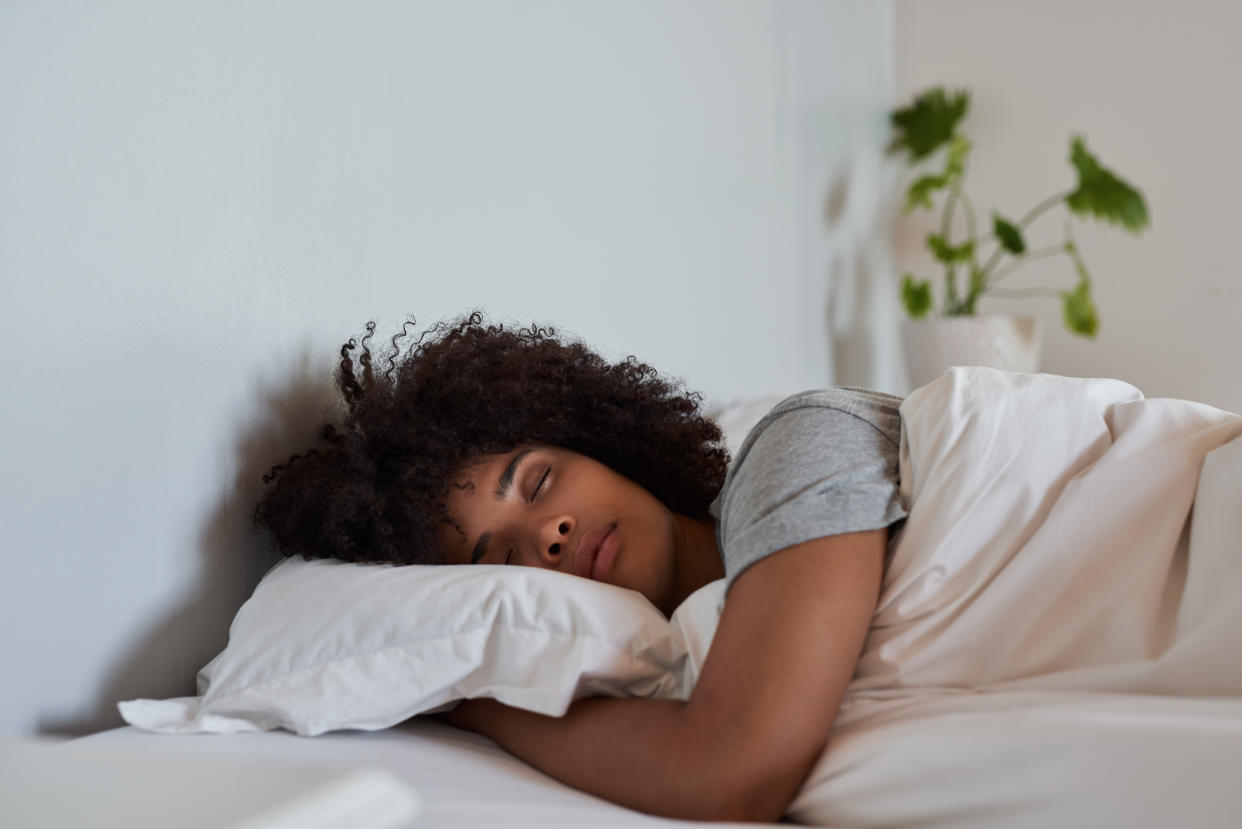
Whether you're feeling stressed or your bedroom just isn't dark enough, we know there are certain factors that can impact the quantity and quality of our sleep.
But did you realise that age can also play an important role in our sleep patterns. From needing to nap more during the day to not sleeping as long at night, the way we snooze can drastically alter as we get older.
Understanding how your sleep cycle changes as you age and how lifestyle factors and the environment can also impact your ZZZs can be really beneficial in improving your sleep health and helping you develop healthy shuteye habits for life.
According to sleep expert James Higgins, CEO of Ethical Bedding, understanding the evolution of our sleep needs as we age is vital for maintaining optimal health and wellbeing, with each decade bringing its unique set of challenges that affect sleep.
Whether you're in your 20s, 30s, 40s or 50s, here's everything you should know about common age-related sleep challenges to look out for and what you can do to navigate them.

Sleep in your 20s
The NHS recommends the average healthy adult needs between seven and nine hours of sleep a night, but this isn't always an achievable goal for people in their 20s as this period is often a time of life transitions.
"Starting university or a career, along with a vibrant social life can often add up to some inevitable late nights," Higgins explains. "These factors often result in erratic sleep patterns."
But this period can be crucial for physical and mental development, so it is important 20somethings still aim to get seven-nine hours of sleep.
"Regular sleep patterns at this stage are not just about rest; they're about building a strong foundation for future health," Higgins explains.
"In your 20s, it's wise to moderate alcohol consumption, especially before bedtime. While social events often involve drinking, too much alcohol can significantly disrupt sleep quality," he continues.
While alcohol may initially induce drowsiness, Higgins says it often leads to non-restorative sleep, impacting both mental sharpness and physical energy the next day.
“Additionally, I recommend setting a digital curfew," he adds. "This helps lessen the impact of blue light from screens, which can disrupt sleep by inhibiting melatonin production. So, it's wise to limit late-night social media browsing or texting."
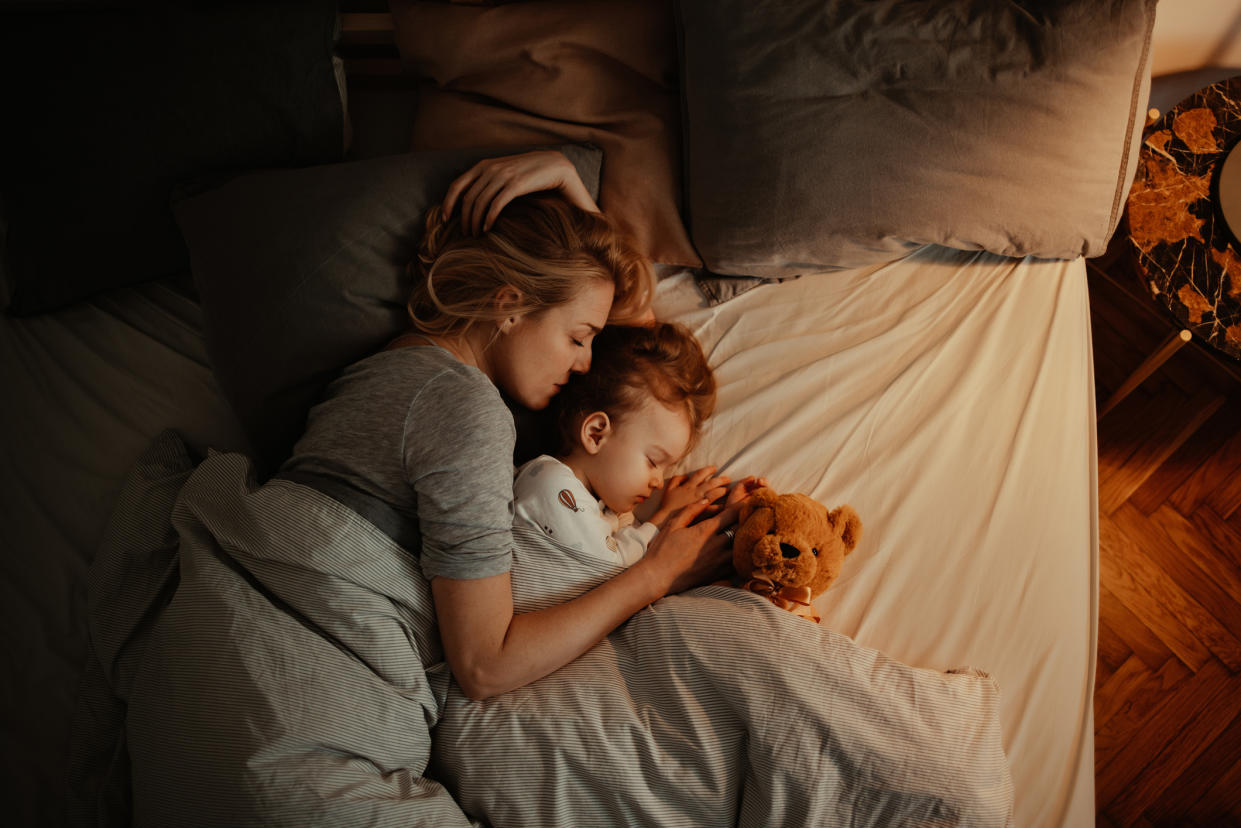
Sleep in your 30s
The environmental factors which tend to affect sleep can have a greater role to play in this decade.
"As we move into our 30s the complexities of balancing a career and possibly starting a family come into play," Higgins explains. "This can lead to increased stress, impacting sleep quality."
The overall advice for the often more sleep-deprived 30-somethings includes trying to maintain consistent sleep-wake schedules, limiting caffeine, getting enough exercise, drinking plenty of water and adopting a healthy diet, which could all help to fuel good sleep.
Side sleeping can also be more comfortable, especially for new mothers, as it helps alleviate back pain and pressure on the spine, which are common postpartum discomforts.
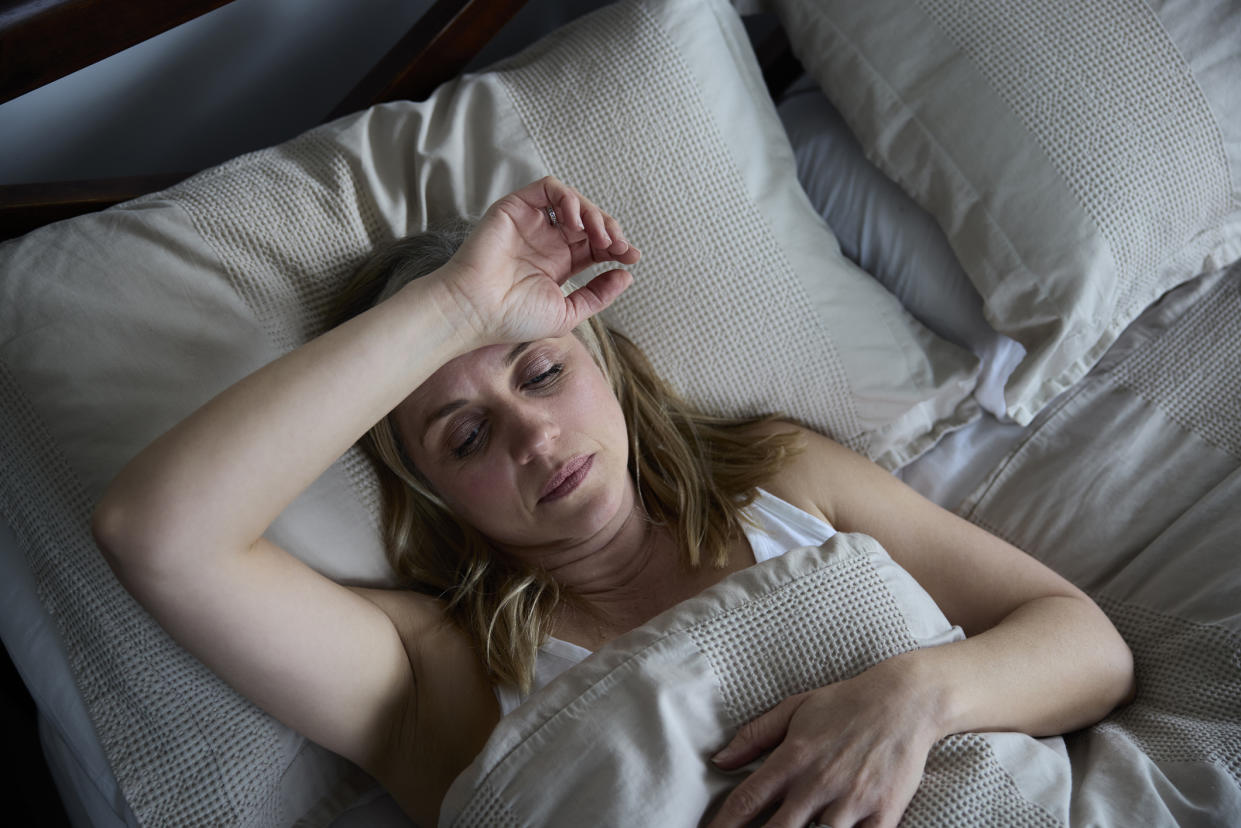
Sleep in your 40s
According to Higgins as we enter our 40s, the changes in our sleep patterns become more apparent.
"Sleep becomes lighter and more fragmented, a result of ageing and reduced sleep-inducing hormones, leading to diminished deep sleep and more frequent awakenings," he explains.
Adopting a healthy lifestyle with regular exercise is crucial, as it can offset some age-related changes in sleep.
"Regular exercise promotes better sleep in older adults by reducing stress and anxiety, improving physical health, and facilitating deeper, more restorative sleep stages, which can be disrupted by age-related changes," Higgins suggests.
Back sleeping can also assist in maintaining spine alignment, and a hybrid mattress can provide the needed support.
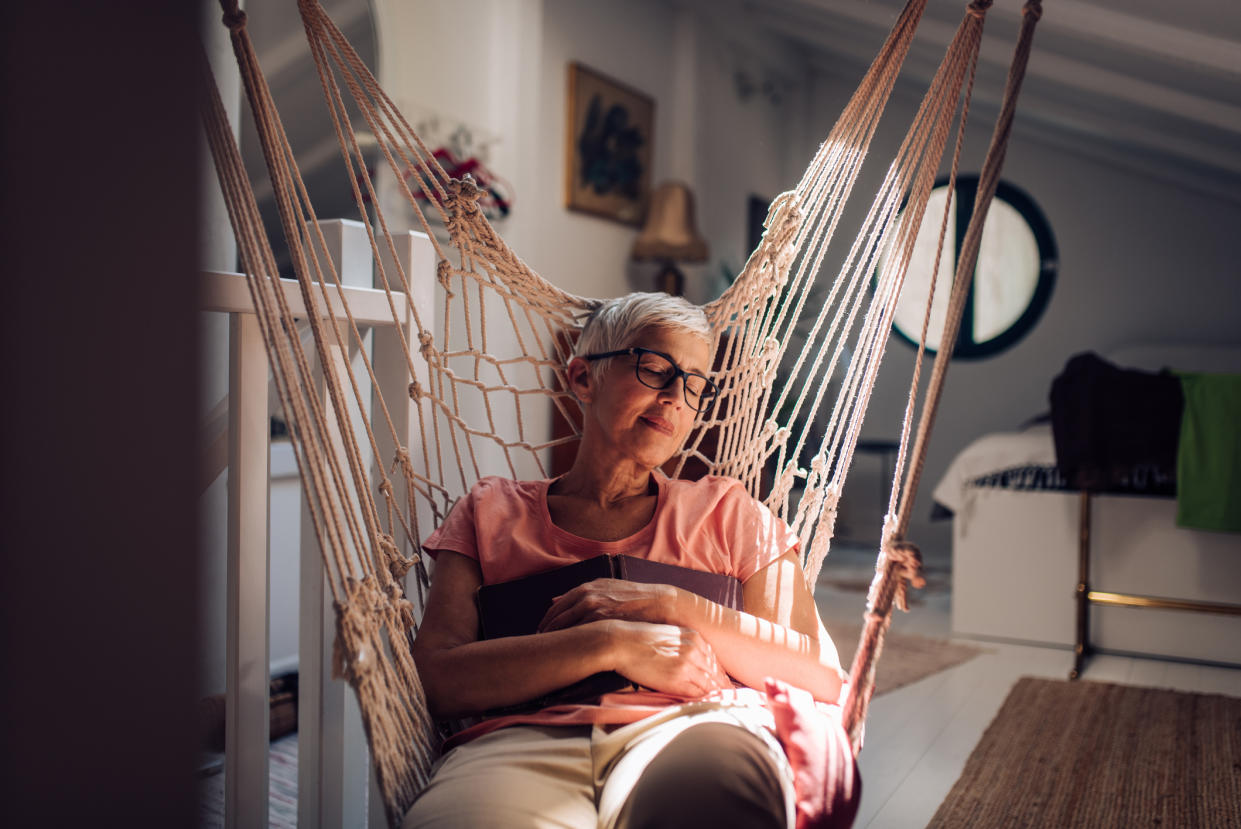
Sleep in your 50s
In this decade hormonal changes significantly impact sleep. And with your hormones out of kilter, it's natural that your body might feel the effects, making it harder to slumber through the night.
The perimenopause (the period before the menopause) and menopause is often associated with poor sleep thanks to a drop in the hormone progesterone (that starts in early perimenopause) and can be a major cause of disturbed sleep.
"Using menopause as an example, we know that these changes can disrupt the body's internal thermostat, leading to night sweats and hot flashes, which in turn can disrupt sleep," Higgins explains.
The NHS recommends following some 'sleep hygiene' tips: cool room, total darkness, no screens before bed, finish eating at least two hours before bed, and no caffeine after lunch.
It also recommend consuming foods that are naturally high in melatonin, a sleep-inducing hormone, which regulates your sleep and awake cycle, including warm milk, pistachios, tart cherries, fatty fish, rice, goji berries, oats and mushrooms.
Managing temperature fluctuations is also key, so consider breathable, moisture-wicking sleepwear and bedding.
"Additionally, using extra pillows for side or back sleeping and creating a relaxing bedtime routine are effective strategies to combat these challenges," Higgins adds. "To further improve your chance of sleeping through the night, use blackout curtains."
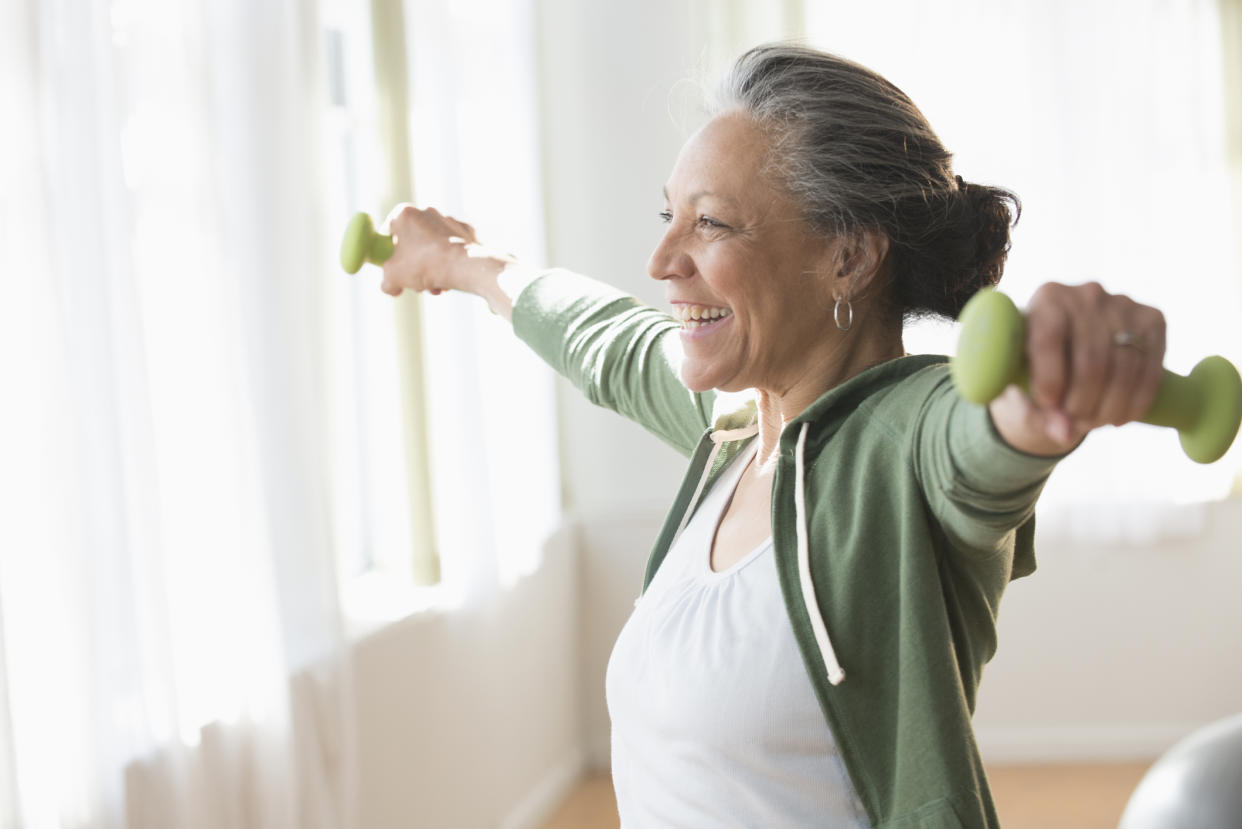
Sleep in your 60s and 70s
During this age bracket Higgins says adapting to further changes in sleep patterns is essential.
"Sleep becomes more fragmented and lighter, a normal part of the ageing process as the body's internal clock shifts," he explains.
"I’d advise making sure the bedroom is easily navigable, especially if getting up in the night becomes more frequent. As well as this, consider buying a bed that can be adjusted for comfort due to issues like acid reflux or snoring."
Maintaining physical activity and a consistent sleep-wake cycle becomes increasingly important in your 70s, as the pattern or structure of sleep – encompassing light, deep, and REM stages – changes.
"With age, there tends to be a decrease in deep sleep, which is essential for physical restoration," Higgins explains. "This can result in lighter and more disrupted sleep patterns."
To counter this, regular physical activity is crucial, as it can promote deeper sleep stages.
Creating an environment conducive to sleep, such as using softer mattresses for better support and ensuring the bedroom is safe and easy to navigate, is also key.
Sleep in your 80s
For those over 80 it's important to address sleep issues with healthcare professionals. "Again, customised or adjustable beds offer comfort and ease of movement while consistency in sleep routines and addressing any underlying health issues are key for maintaining sleep quality," Higgins advises.
"Remember, it’s always good to consider personal comfort and any specific health conditions when tailoring your sleep environment.”
Sleep: Read more
4 easy ways to offset a bad night’s sleep in just 20 minutes (Yahoo Life UK, 4-min read)
Losing sleep 'puts women at greater risk of diabetes' (Yahoo Life UK, 3-min read)
What are sleep chronotypes? Understanding them could improve your sleeping habits (Yahoo Life UK, 7-min read)


